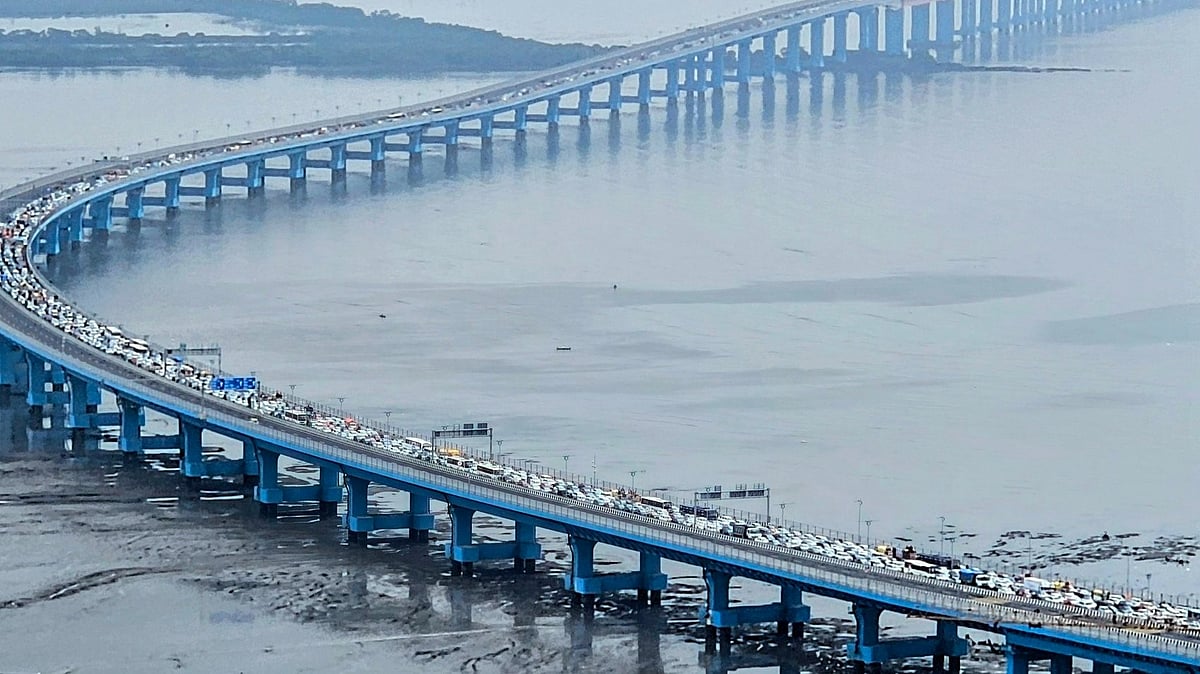Nation
South Mumbai paralysed by Maratha quota protest gridlock
Traffic bottlenecks were reported from almost every entry point into South Mumbai, with areas around CSMT, Fort and Nariman Point particularly affected

South Mumbai is facing a severe traffic gridlock as the Maratha quota protest led by Manoj Jarange Patil brings key city arteries to a standstill. Thousands of protesters gathered near Azad Maidan on 29 August, Thursday, prompting extensive road closures and diversions from 6 a.m.
The Mumbai Traffic Police allowed only emergency vehicles to navigate major routes, including the Eastern Freeway, Atal Setu and the Coastal Road.
Traffic bottlenecks were reported from almost every entry point into South Mumbai, with areas around CSMT, Fort and Nariman Point particularly affected. The Eastern Freeway was completely blocked by protest vehicles, while the Coastal Road experienced a snarl stretching from Priyadarshini Park (PDP) to Nariman Point, leaving motorists stranded for hours.
On the ground, visuals from Chhatrapati Shivaji Maharaj Terminus and the Fort area showed thousands of protesters marching in unison, waving placards and chanting slogans as they occupied arterial roads.
The sheer scale of the turnout slowed vehicular movement to a crawl across south-central Mumbai. Videos also showed hundreds of supporters gathered on CSMT platforms, further adding to the chaos.
The protest convoy, which began in Jalna district on 27 August, reached Mumbai on the morning of 28 August, Thursday, with hundreds of vehicles. The Vashi bridge and surrounding stretches including the Palaspe–Gavanphata–Palm Beach Road corridor were reserved exclusively for the convoy.
Published: undefined
Heavy vehicles, trucks and goods carriers were temporarily barred from Navi Mumbai routes, causing congestion and gridlock in the Vashi area, while roads around Azad Maidan and approaches to CST and CSMT were also heavily restricted.
Public transport has been severely affected. BEST bus routes around Azad Maidan, Kala Chowki, Mazgaon, Byculla, Dadar and Mumbai Central Depot were suspended or curtailed. Authorities urged commuters to avoid South Mumbai-bound routes via Atal Setu, the Coastal Road and the Eastern Freeway, as well as the Vashi corridor, and to plan alternate paths wherever possible.
The protest demands a 10 per cent quota reservation for the Maratha community under the Other Backward Classes (OBC) category in government jobs and education. Jarange has called for all Marathas to be recognised as Kunbis, an agrarian caste included in the OBC category, granting broader access to government benefits.
He has launched an indefinite hunger strike at Azad Maidan, emphasising that the demonstration will continue until demands are met, while urging supporters to remain peaceful.
Mumbai police granted permission for the protest at Azad Maidan on 29 August, limiting attendance to 5,000 protesters, restricting protest vehicles to five, and requiring dispersal by 6 pm.
Over 1,500 personnel were deployed in and around Azad Maidan, CST and major access routes including Eastern Freeway, Atal Setu, Coastal Road and Vashi bridge to manage traffic and maintain law and order.
Commuters have been warned to expect prolonged delays and severe gridlock throughout the day, with authorities advising alternate routes via Western Express Highway and suburban links to bypass congested zones in both South Mumbai and Navi Mumbai.
Published: undefined
Follow us on: Facebook, Twitter, Google News, Instagram
Join our official telegram channel (@nationalherald) and stay updated with the latest headlines
Published: undefined